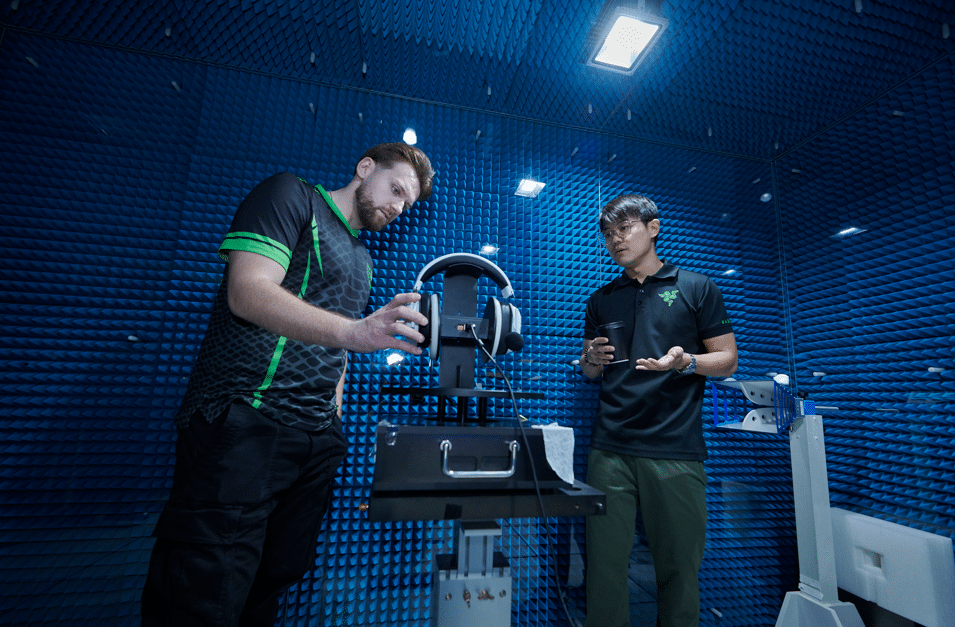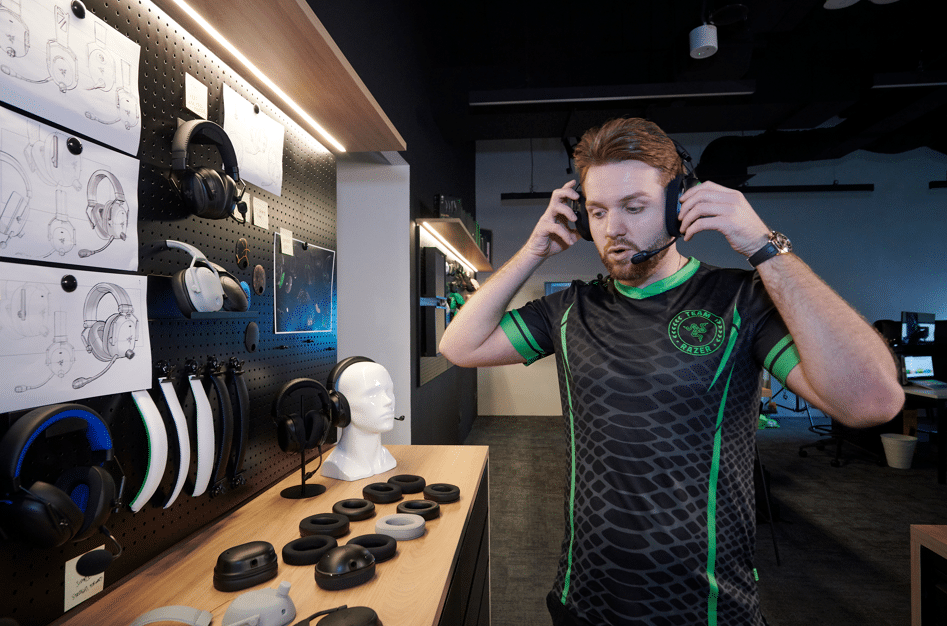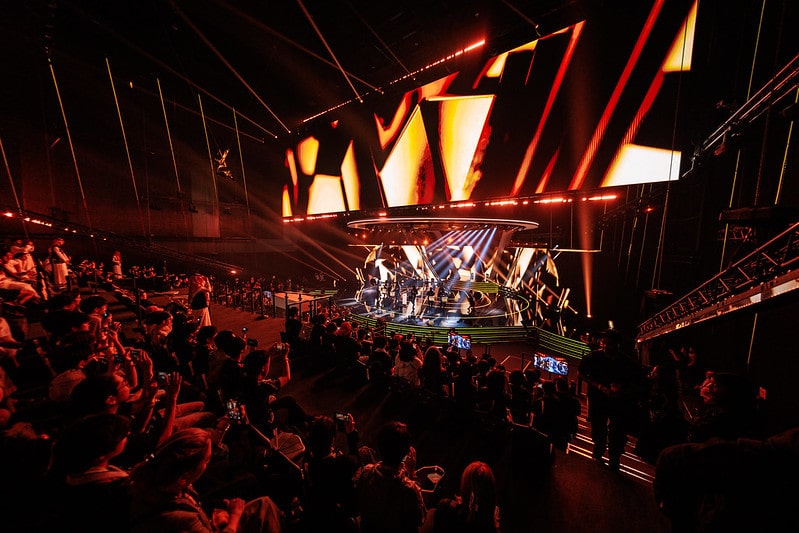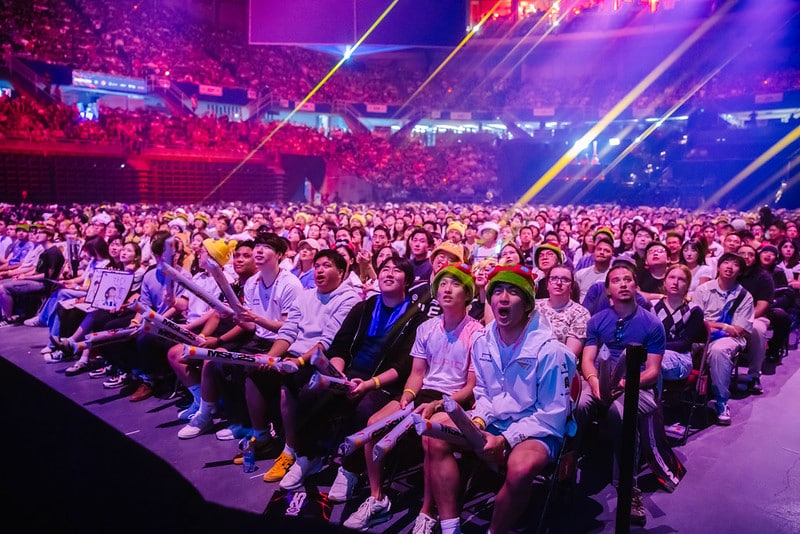
Since its documented beginnings in 1972, when participants vied for a subscription to a well-known magazine, the world of competitive video gaming has seen a transformation.
The landscape has developed significantly, transitioning from modest, local competitions to comprehensive worldwide frameworks showcasing the pinnacle of gaming proficiency.
Beyond the individual games, this arena has turned into an economic powerhouse, drawing in international brands, cultivating novel ventures, expanding the horizons of gaming technology, and turning players into influential figures with extensive online communities.
Established in 1998, the peripherals manufacturer Razer has been a central figure, equipping competitors with devices while advancing alongside the competitive gaming scene as its global footprint expanded.
Esports Insider engaged in a discussion with Jeff Chau, Razer’s Director of Global Esports, to consider the present condition of the esports environment and explore its prospective direction.
“Observing the Continuous Advancement Has Been Remarkable”: Peripheral Transformations in Esports

During a discussion with Razer’s Director of Global Esports, the significance of technology and its effects on the competitive gaming sector was highlighted. Additionally, these enhancements have emerged as a crucial element in Razer’s growth throughout the years.
Professional competitors are more particular than ever about even the smallest aspects of their ideal setups, varying from mouse precision for critical headshots to keyboards designed for crucial movement. Companies such as Logitech, Asus, and ZOWIE have collaborated closely with the scene’s top players to develop the upcoming generation of peripherals.
Razer recently unveiled the DeathAdder V4 Pro mouse, a product distinct from earlier iterations as a device created in partnership with Counter-Strike professionals. During discussions with Esports Insider, Chau mentioned that collaborating with athletes in the industry was essential because the ‘game has undergone significant changes’ over the previous decade.
Chau stated, “I played Starcraft, and if you remember, mice weighed 120 to 150 grammes, and everything was wired.” “So now everything needs to be wireless, lighter, and the battery needs to last longer.”
“That’s why the Deathadder V4 Pro that we just released has a 150-hour battery life, which is the industry standard. It has been amazing to see how consistent innovation and efforts to push peak performance and technology into something as simple as a mouse have been made.
“But every millisecond counts for esports professionals. This is why we collaborate closely with professionals because they are so attuned to these changes.”
Chau also discussed how peripherals in esports have changed as games have advanced, becoming more complex over time as professional players favour more advanced titles.
Notably, mouse movements have changed with titles, from ‘horizontal’ isometric MOBAs like League of Legends to ‘vertical’ action shooters like VALORANT, forcing tech to ‘adapt’ as playstyles and demands change.
Whether it’s lighter mice with wireless capabilities, or changing the size and material of mousepads, Razer insists that hardware has just as much of an impact on a player’s performance as balance patches within a game.
Chau stated, “Esports is, in and of itself, a technology narrative.” “So, as these games change and new titles, such as VALORANT five years ago or Fortnite, are introduced, they continually push us to follow what players prefer based on these new types of games.”
“Therefore, the mice have become lighter, the technology has improved, and we must basically make the mice more durable.”
“Esports Fans Admire These Players as the Greatest of All Time”: How Athletes Have Influenced Esports

Over the years, esports has been instrumental in establishing some of the most prominent online personalities in the influencer sphere. From active competitors like Mathieu ‘ZywOo’ Herbaut to founders of esports organisations like Matthew ‘Nadeshot’ Haag, esports personalities have unquestionably integrated into mainstream culture.
Razer emphasised the significance of collaborating with industry players through “persona product marketing,” which involves partnering with organisations and players to sponsor events and introduce exclusive product lines.
Chau commented, “Why does it matter?” “Because esports fans and members of the community regard these players as GOATs or gods.”
“Witnessing a player such as Lee ‘Faker’ Sang-hyeok (League of Legends) or Nikola ‘NiKo’ Kovač (Counter-Strike 2) using our mice and achieving victory serves as a marketing proof point.”
One of the most well-known active players is T1’s League of Legends icon, Faker. At the Esports Awards, the player was recently named “PC Player of the Decade” and was welcomed as Riot Games’ inaugural Hall of Legends inductee. Throughout, he has been involved in a long-standing collaboration with Razer, and this year, the two parties celebrated their tenth anniversary.
In addition to a livestream at Razer’s Singapore headquarters, a unique Viper V3 Pro Faker edition mouse was also released, and it proved to be one of the company’s largest product launches to date.
Chau added, “It was the most successful activation we did at the Razor headquarters.” “It was completely over capacity. And Faker had a wonderful time. He had the opportunity to interact with his Singaporean fans.”
“Governments Have Played a Significant Role”: The Esports Landscape is Expanding

Esports has grown far beyond the niche gaming circles to which it was formerly confined, as an increasing number of organisations and governments recognise it as a legitimate sport, career path, and platform.
In 2025, the International Olympic Committee fully integrated esports into its ecosystem with the announcement of the Olympic Esports Games, scheduled for 2027. Although its decision to partner with the Esports World Cup Foundation, supported by the Saudi Arabian government, has drawn online criticism for hosting the inaugural event in a nation with contentious social policies.
Another instance is the Asian Games, where the Olympic Council of Asia officially recognised esports as a medal event in December 2020, resulting in its implementation in the 2022 tournament. The lineup of esports titles that will be featured in the 2026 Nachi-nagoya event was recently revealed.
During an interview with Esports Insider, Chau stated, “I believe that governments have played a significant role, from China to Singapore, to many other countries. Some, like Korea, have established it as an official profession. Germany recently announced that it is a non-profit activity.
“In [South] Korea, if you compete in esports at the Asian Games, you are exempt from military service*. Consequently, governments have elevated esports to a more professional level.”
“Growing up, I never imagined that would be possible. Therefore, I believe that governments have been instrumental.”
*If a South Korean player wins a gold medal in an esports event at the Asian Games, they may be exempt from full military service because they are recognised for bringing national prestige. For example, Lee ‘Faker’ Sang-hyeok was exempted after winning in League of Legends at the 2022 Asian Games.
“Follow the Market, the Players, and the Fans”: Razer on the Trajectory of Esports

Following discussions regarding the origins and current status of esports, the focus shifted to the future trajectory of the esports landscape.
Razer’s Global Director of Esports emphasised the company’s “strong emphasis” on AI and the advantages it can provide to gamers and aspiring athletes. The AI Centre of Excellence, the first of three planned global AI hubs, was launched by the company in Singapore in August 2025.
Razer unveiled its AI coaching programme, Project AVA, earlier this year at the CES 2025 show. Similar to a personal assistant, Project AVA analyses a player’s skill during matches and provides post-match breakdowns for feedback.
As new titles like NetEase’s hero shooter Marvel Rivals gain traction, and established games like League of Legends continue to expand with fresh content, Razer sees technology’s next step as assisting new players in navigating increasingly steep learning curves.
Chau shared that “Razer is truly focused on AI and gaming.” “We want to assist gamers in improving their performance. As a result, we are focusing on how AI can assist players in learning the game and improving their gameplay through coaching and other similar methods.
“The more players who become hardcore and enthusiastic gamers, the better it is for Razer’s business, right?”
Chau anticipates that the industry will grow in two ways, reflecting the stability and volatility of esports, when it comes to the future of the scene.
Established titles like Counter-Strike will withstand the test of time and continue to attract interest. According to SteamDB, Valve’s tactical shooter has continued to gain popularity over the past decade, maintaining a consistent active player base of 1 million daily users.
On the other hand, new games will emerge that may compete with some of the most well-known esports titles. NetEase established the Marvel Rivals Ignite esports scene, which featured a $3 million (approximately £2.26 million) total prize pool, just a few months after its launch in December 2024. While the success of Marvel Rivals in esports is debatable, the game demonstrates how new scenes and interests will continue to emerge in the future.
When asked about the trajectory of the esports landscape, Chau responded: “I believe that in order for esports to continue its expansion, it is necessary to listen to the market’s demands. Follow the market, the players, and the fans, and then continue to support, expand, and amplify that.
“As a result, there will be a game—perhaps mobile, or who knows what—that will captivate the entire world like League or VALORANT, and it will become the next major esports title.
“We want to support that and assist in the growth of that esports title because certain games will no longer be as popular as they once were. We want to continue listening to the market and supporting the games with the greatest mass market appeal.”
The post “Esports is a technology story”: Razer Global Esports Director Jeff Chau discusses the state of esports appeared first on Esports Insider.












